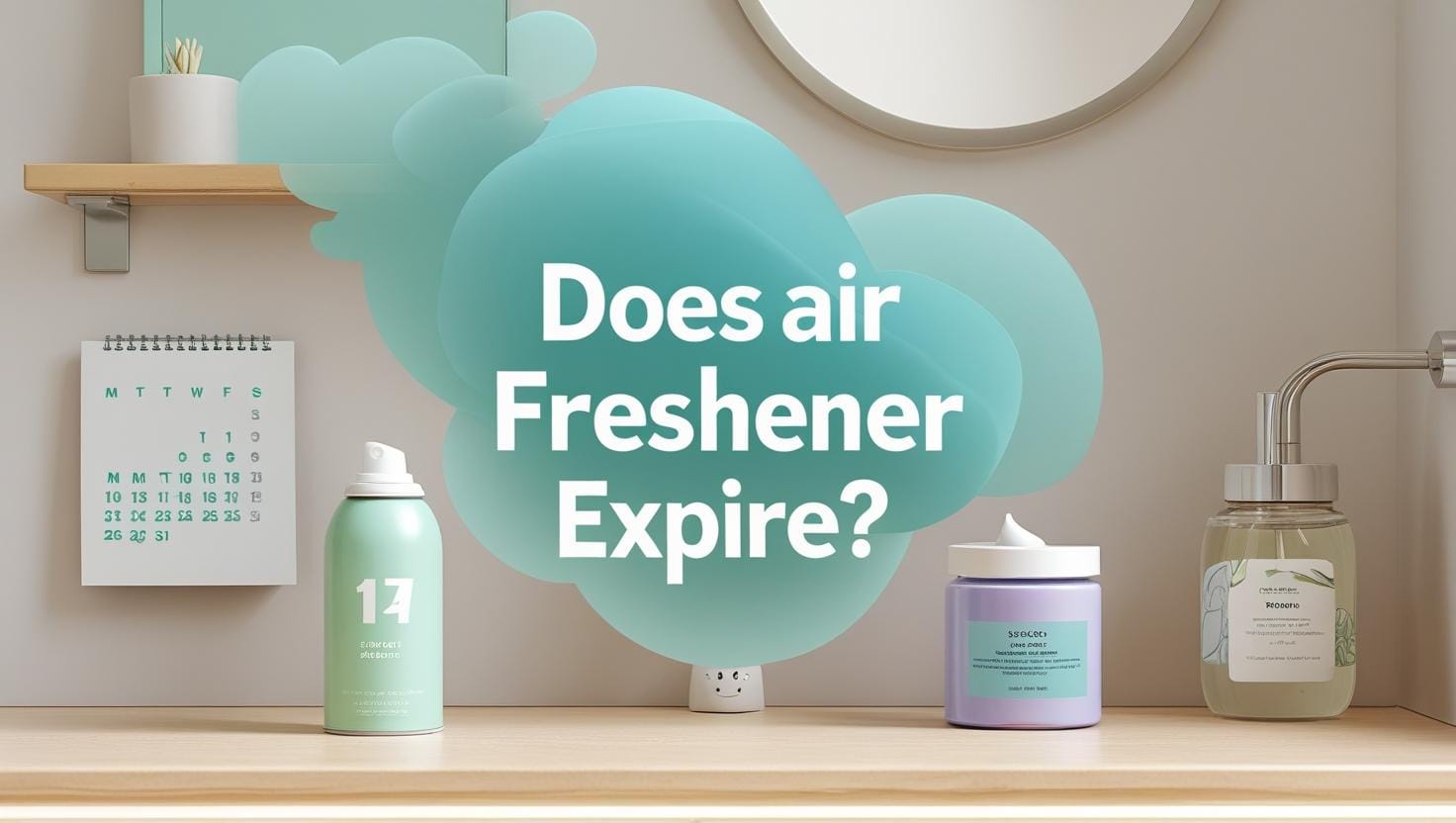Does Air Freshener Expire?
Uncovering the truth about the shelf life of sprays, plug-ins, and gels. We dive into the science to see if that old air freshener is still good, or just good for the bin.

You’ve found it lurking in the back of a cabinet: a can of aerosol spray from three seasons ago, a plug-in refill you forgot you had, or a car freshener still in its wrapper. The immediate question is, “Is this still good?” It’s a common household puzzle. Unlike a carton of milk, most air fresheners don’t come with a prominent “Best By” date, leaving us to wonder if they lose their punch over time.
The short answer is **yes, air fresheners do expire.** They don’t “spoil” or become harmful in the way food does, but they absolutely lose their effectiveness. The complex blend of chemicals responsible for that “Ocean Breeze” or “Fresh Linen” scent is not immortal. Over time, these compounds break down, evaporate, and change, leading to a product that’s a faint whisper of its former self.
Key Takeaways: The Short Answer
- Effectiveness Fades: Air fresheners typically lose potency in 1-2 years if unopened and stored properly.
- It’s a Chemical Process: Scent degradation is caused by oxidation and evaporation of fragrance oils.
- Safety is Not a Major Concern: Using an “expired” air freshener is generally safe, just ineffective.
- Storage is Crucial: Heat and sunlight are the biggest enemies of a long shelf life.
What Happens Chemically When an Air Freshener ‘Expires’?
To understand why a scent fades, we need to look at its core components. Most air fresheners are a mixture of fragrance compounds (often essential oils or synthetic molecules), solvents (like alcohol or water), and, in the case of aerosols, propellants. The “expiration” process is primarily about the breakdown of these fragrant molecules.
- Oxidation: This is the most common culprit. When fragrance molecules are exposed to oxygen, they undergo a chemical reaction. This process can alter the structure of the molecule, changing its scent profile entirely—often making it weaker or giving it a stale, flat aroma. Citrus scents are particularly vulnerable to oxidation.
- Evaporation: The volatile organic compounds (VOCs) that make up fragrances are, by nature, designed to evaporate easily to travel through the air to your nose. Even in a sealed container, some slow evaporation can occur over a long period. For gel or liquid-based fresheners (like plug-ins or reed diffusers), the solvent base itself will evaporate, leaving the fragrance with no way to disperse.
- Light and Heat Degradation: UV light and high temperatures act as catalysts, dramatically speeding up both oxidation and evaporation. This is why storing an air freshener on a sunny windowsill is the fastest way to ruin it.
Interactive Shelf Life Checker
Curious about a specific type of air freshener? Select it from the dropdown below to see its typical lifespan and best practices for storage.
Select a type above to see the results.
How to Tell if Your Air Freshener Has Expired
Since there’s no official date, you have to use your senses. Here are the clear signs that your product is past its prime:
- Weak or Altered Scent: The most obvious sign. If you spray it and barely smell anything, or if the scent smells “off” and not like you remember, the fragrance oils have likely degraded.
- Discoloration: If a once-clear liquid in a plug-in or diffuser has turned yellow or brownish, it’s a strong indicator of oxidation.
- Change in Consistency: Gel-based air fresheners that have dried out, hardened, or shrunk away from the sides of their container are no longer effective. The moisture needed to release the scent is gone.
- Clogged Nozzle (Aerosols): Over long periods, ingredients can separate and potentially clog the spray nozzle. While not a direct sign of scent expiration, it indicates the product has been sitting for a very long time.
Myth vs. Fact
What About Unopened Air Fresheners?
An unopened air freshener will certainly last longer than an open one, but it is not immune to aging. The packaging provides a barrier, but it’s not perfect. Over years, oxygen can still permeate plastics, and temperature fluctuations will still affect the chemical stability inside. A general rule of thumb is that most unopened air fresheners have a stable shelf life of about **two years** when stored in a cool, dark, and dry place like a linen closet or under a sink.
Conclusion: Trust Your Nose and Store with Care
So, does air freshener expire? Yes, in the sense that its performance and quality decline over time. While it won’t harm you, it won’t do the job it was designed for either. The journey from a vibrant fragrance to a faint memory is a natural process of chemical degradation. To get the most out of your products, buy only what you need for the near future and store them properly—away from their enemies of heat and light. If you find an old one, give it a test; your nose will tell you everything you need to know.
